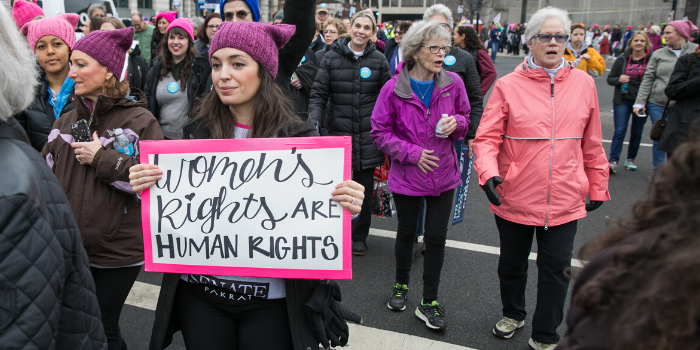
Growing up in Texas, the summer of 2013 was a monumental time to be inspired by the power of women’s voices. A high school student at the time, I remember eagerly following along that June as State Senator Wendy Davis stood firm in her iconic pink running shoes as she filibustered a highly-restrictive abortion bill for 11 hours straight. The bill sought to impose some of the harshest targeted regulation of abortion providers (TRAP) laws in the country, including a requirement that abortion clinics meet the same standards that hospital-style surgical centers do, and a mandate that any abortion provider have admitting privileges at a nearby hospital.
While Davis succeeded in preventing a vote on the bill on the final day of the legislative session, a special session was called the next day and the law was signed into law less than a month later.
A group of Texas abortion clinics and providers quickly filed a lawsuit asserting that the law’s strict standards were impossible to meet and that the law was causing dozens of clinics to close. The plaintiffs asserted that these clinic closures placed an “undue burden” on their patients’ access to abortion services, as many pregnant people were being forced to travel hundreds of miles to get to the nearest clinic. Ultimately, the lawsuit made its way to the Supreme Court (Whole Women’s Health v. Hellerstedt), where the Court ruled 5-3 that the law placed an undue burden on those seeking abortion care and was therefore unconstitutional.
But despite this landmark ruling just three years ago, the Supreme Court has now agreed to hear a case on March 4 concerning a nearly identical state law from Louisiana. June Medical Services, LLC v. Gee is the first abortion-related case the Supreme Court will hear since the elevation of Justice Kavanaugh to the Supreme Court, but the precedent set in Whole Women’s Health clearly requires the Court to again strike down the restrictive law in question.
Like Whole Women’s Health, June Medical challenges a law that requires abortion providers to have admitting privileges at a hospital within 30 miles. But admitting privileges are medically unnecessary and often impossible-to-obtain. Hospitals can refuse admitting privileges to doctors who provide abortion care for any reason, including ideological opposition, fear of backlash, or because their patients rarely ever need to be admitted. If enacted, the law is likely to force all but one abortion clinic in Louisiana to shut down, leaving a single provider for over one million state residents of reproductive age.
The consequences of allowing the law to go into effect would be significant. It would create substantial logistical and financial barriers for Louisianans seeking abortion care, as many would be forced to drive long distances, fly to another state, stay overnight in hotels, take off school or work, find childcare. Even worse, if the Court allows this blatantly unconstitutional law to stand, the justices would be giving the green light to any state looking to further erode abortion access — even as Roe v. Wade continues to stand.
Last month, several Reform Movement institutions, including the Union for Reform Judaism, Women of Reform Judaism, Central Conference of American Rabbis, American Association of Cantors, and Men of Reform Judaism, proudly joined 21 religious and faith organizations on an amicus brief in support of June Medical Services and in solidarity with dozens of health care providers, civil rights organizations, and other groups opposing this egregious attempt to undermine abortion access.
January 22 marks the 47th anniversary of Roe v. Wade. Yet, we know that the constitutional right to an abortion granted by Roe is meaningless if those seeking abortion care cannot access it.
Honor Roe by joining us on Tuesday, January 21 from 3-4pm ET for a webinar, part of the Women of Reform Judaism and Religious Action Center’s Reproductive Health & Rights Campaign, to learn more about June Medical Services, LLC v. Gee and opportunities for action. Register for the January 21 webinar today at wrj.org/junemedical.
Ally Karpel is the WRJ-RAC Reproductive Health & Rights Campaign Associate, where she drives strategy around the Reform Movement's reproductive rights advocacy and works to mobilize Reform communities to take action on a local, state, provincial, and federal level. Prior to her current role, Ally was a 2018-2019 Eisendrath Legislative Assistant. She is a proud member of Temple Emanu-El Dallas, and an alumna of URJ Greene Family Camp. This blog was originally published on the RAC's blog.
Related Posts

Continuing to Educate and Empower People Together

My Challah-Making Experience


